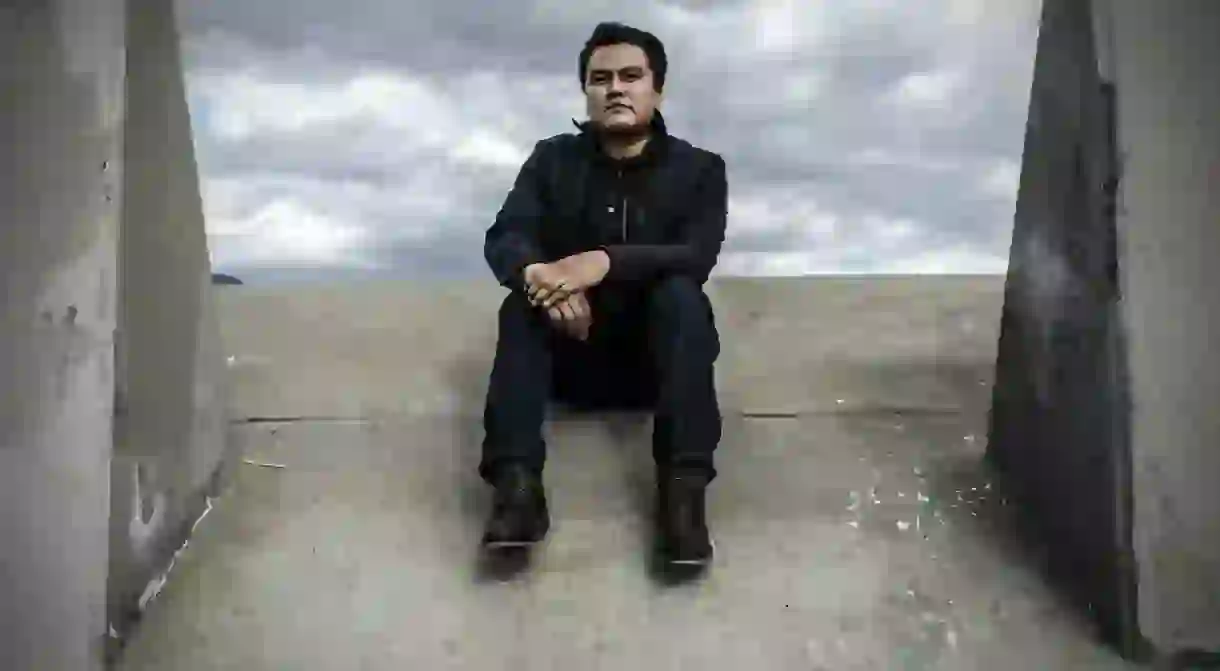Sherwin Bitsui On Poetry as Translation and the Influence of Nature

Sherwin Bitsui is a Navajo poet whose work blurs the lines of landscape and dreamscape.
Sherwin Bitsui’s next poetry collection, Dissolve, comes out in October 2018. His recent work leans long, providing him the space to explore his ideas. He writes about the tension between nature and the world humans inhabit, always keeping in focus the continuous movement between states of being. Bitsui sits down with Culture Trip to discuss his poetry and the power of language.
Culture Trip: What brought you to poetry?
Sherwin Bitsui: I was drawn by language and imagination. I was really interested in a kind of storytelling that felt natural to my abilities at the time. I was still in my early 20s and I read poems by Western poets. The books that my English teacher had in her office. I felt a connection with those poets. The way the language operated in the poem reflected a lot of my thinking and my thought process at the time. It felt like a really natural connection.
CT: Has your relationship to poetry changed over the years since then?
SB: Not the intimate immediate relationship. It has always been the same tension that creates the work. It is always that same moment that erupts and drowns me, my own personal journey into the poem. It is the thing that resonates throughout all of my books and continues toward my next one.

CT: Dissolve, your upcoming book, is only two poems. What is your inclination to go so long with your poems?
SB: Flood Song [2009] was a book-length poem, which is the book before this one. It is a mystery to me why I want to write these long works. I think they are challenging. The poems themselves are extended. They extend into time and they turn and they nurture me as the author. It feels like an extension of a thought, of an older song that I am speaking to the world. I don’t really have an answer yet. I am hoping that my next book is a kind of return to the work I was doing in my first book. Right now I am writing smaller sequences.
CT: A lot of your work deals with Navajo and English. How has this influenced your approach to writing?
SB: I speak both languages and sometimes I feel that I think in Navajo as a write my poems. I see through several languages into the world. Other times I’m trying to match that worldview with the English words and with the phrases in English. Because I am bilingual, I am able to move through those perspectives. There is an immediacy to that movement. It creates a beautiful environment for these images to form.
CT: Most of my favorite poets are bilingual or multilingual. It is a skill set that lends itself so well to poetry.
SB: The Navajo language is very poetic already, so I am always in a bit of translation anyway. With poetry, I am translating feeling, emotion or tension. Hopefully, my readers respond to that experience.
CT: I am sure you have seen the articles about poetry being even more popular than ever before. Do you have any thoughts about that?
SB: I guess I don’t really know. It has always been popular for me. I am immersed in the culture of poetry. It is nice to see that the greater world has a respect and a love for poetry. In the United States there is certainly less of a presence of poetry in people’s lives, so I am excited about possibility. I think social media might have some part in that popularity. It is pretty exciting.
I just got back from Medellín, Colombia, and the whole culture of this city is poetry. There is such great love of poetry in this town in Colombia.

CT: You have lived in a few different places. How do you find the place you live influencing the work you are producing?
SB: I grew up in northern Arizona on the Navajo reservation. I was a shepherd all through my youth. I walked the land. I feel like my vision of the world comes from the land. All of those trails that I have walked, somehow that movement is still inherent in the work. The quality of the poems, the way they meander, the way they move, feels very much like the landscape. Whether dreamscape or landscape, it is tethered to the landscape I come from. All of that influences my work: the weather of those places.













